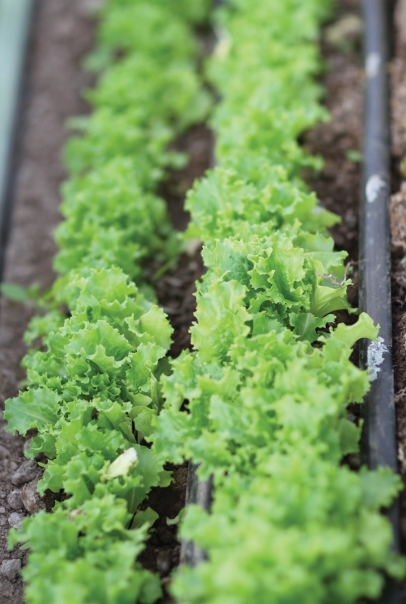Farming and Climate Change
How a shift in diet may be the most powerful way to reduce carbon emissions
For the last 20 years or so, we’ve been told that if we want to reduce our carbon impact we should: change incandescent light bulbs to compact fluorescents, buy energy-efficient appliances, recycle, take the bus, ride a bike or buy an electric car. It’s rare that anyone mentions the immense power we have to reduce our carbon emissions by making simple adjustments to our eating habits.
Agriculture, particularly livestock production and transport, is responsible for a significant amount of worldwide carbon emissions. According to the Environmental Working Group, industrially raised beef generates 27.1 pounds of carbon dioxide equivalents (CO2e) for each pound of meat consumed. Vegetables typically produce only two pounds of CO2e, or less, per pound consumed. By simply shifting to a more plant-based diet, we could dramatically reduce our carbon footprint.
Eating in season and purchasing local food from environmentally responsible vegetable growers could reduce our impact further. Farms that prioritize ecosystem health, energy efficiency, carbon sequestration (the process of capturing carbon from the atmosphere and storing it long term in the soil, which mitigates the build-up of greenhouse gases) and land stewardship are able to produce vegetables while generating only 0.35 pounds of carbon per pound of vegetables consumed; in some cases, even less.
This doesn’t mean that we need to completely eliminate animal products from our diet. Supporting local, pasture-based livestock producers can allow us to enjoy high-quality meat, dairy and eggs without the associated industrial carbon footprint. Farms that practice multi-species rotational grazing are able to produce animal products that generate up to 88 percent less CO2e, compared to their industrial counterparts. Additionally, these animals can be used to maintain landscapes in rocky, steep, wet or forested areas that would otherwise be unsuitable for food production. Intensively managed models of grazing have even been shown to have a net negative carbon impact.
So, what can you do? Start small—try to eliminate meat from just one meal per week. Find and support local, pasture-based farmers who prioritize soil health. Eat seasonally. By simply adjusting our eating habits, we can harness one of the most powerful tools we have to create and sustain positive change.




